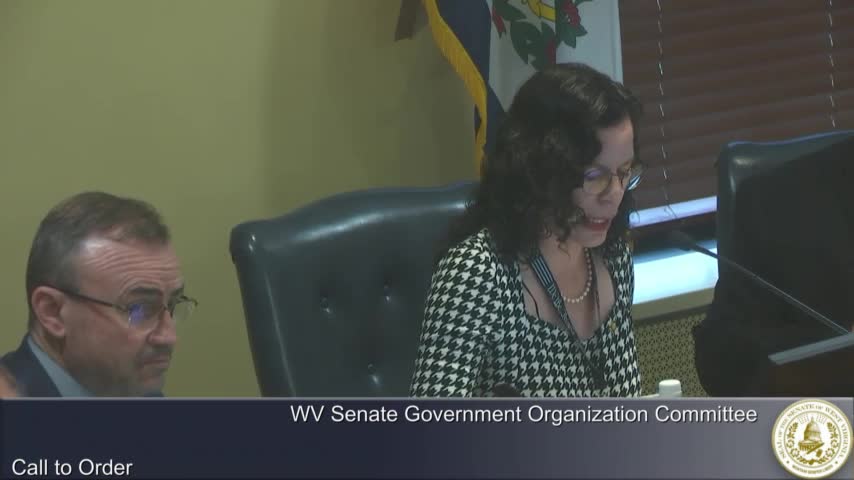Committee advances bill requiring written contracts and one-year warranty for residential improvements
Get AI-powered insights, summaries, and transcripts
Subscribe
Summary
The Committee on Government Organization voted to report Committee Substitute Senate Bill 5 69 to the full Senate with a recommendation that it pass and sent the measure first to the judiciary committee.
The Committee on Government Organization voted to report Committee Substitute Senate Bill 5 69 to the full Senate with a recommendation that it do pass and, under its double reference, first be sent to the committee on judiciary.
The bill would require contractors who perform residential improvements to offer a written contract that includes specific representations and a warranty covering “all work performed pursuant to the contract” for one year from substantial completion; it also permits arbitration of disputes, provided arbitration proceedings occur within 50 miles of the residence.
Why it matters: the measure would standardize contract terms and warranty obligations for home construction and remodeling work statewide, create grounds for disciplinary proceedings before the Contractors Licensing Board for specified failures, and change warranty timing and scope that contractors must offer homeowners.
The bill as presented by committee counsel would “require a contract for residential improvements, include certain representations by the contractor, and provide a warranty,” and it sets the warranty period at one year for all work performed under the contract rather than the two different periods the prior version used, counsel said. Counsel also told the panel that the bill “allows arbitration of disputes but requires any arbitration proceedings be held within 50 miles of the residence” and that the arbitration clause must be prominent in the contract.
Counsel clarified legal terms and limits. On the meaning of “substantial completion,” counsel said it is “a term of art in the construction industry” and explained it denotes when “the project is completed sufficiently for the owner to have what is sometimes used as beneficial occupancy that they can use the structure or the improvements for the purpose for which they are intended.” Counsel further told senators the bill applies to any contractor and that the disciplinary teeth of the measure are limited to licensed contractors because only licensed contractors are subject to disciplinary proceedings before the Contractors Licensing Board.
A homeowner who testified to the committee described defects and code-enforcement problems at his new house as the kind of situation the bill aims to address. “Purchasing a home is probably one of the most important investments a family can make,” Jeremy Kinney, an active‑duty service member who testified as a private citizen, told the committee. Kinney described repeated septic failures, alleged placement of a neighbor’s house and septic on his property, and problems he attributed to the builder and local oversight.
Senators pressed staff on implementation and scope. Committee members asked whether the bill sets a minimum contract amount; counsel said there is no minimum dollar amount in the draft. Members also discussed commonplace exemptions such as homeowner‑performed work and the existing statutory thresholds that allow limited “handyman” work without a license; one senator recalled a threshold near $2,500 but counsel said the draft team declined to add a monetary threshold because it could be evaded by dividing work into smaller contracts.
Amendments and committee action: Junior Senator from the Fifteenth offered two amendments that the committee adopted by voice vote. The changes replace the phrase “accepted building practices” with “commonly accepted industry standards” and clarify the warranty language to read “all materials provided by the contractor are without defect.” After debate and the amendments’ adoption, the committee reported Senate Bill 5 69 to the full Senate with a recommendation that it pass, subject to its earlier referral to the judiciary committee.
What the bill does not do: counsel and members stated the bill cannot completely resolve problems where local inspections were improperly performed, where signatures were forged, or where permit sign‑offs were in error; those situations, counsel said, may require separate legislation or administrative remedies. Counsel also noted the “right to cure” provisions in a related article establish an inspection and cure process that triggers contractor‑licensing board review when defects are alleged.
Next steps: the committee’s recommendation sends the bill to the full Senate and leaves a second reference to the judiciary committee for legal review.
